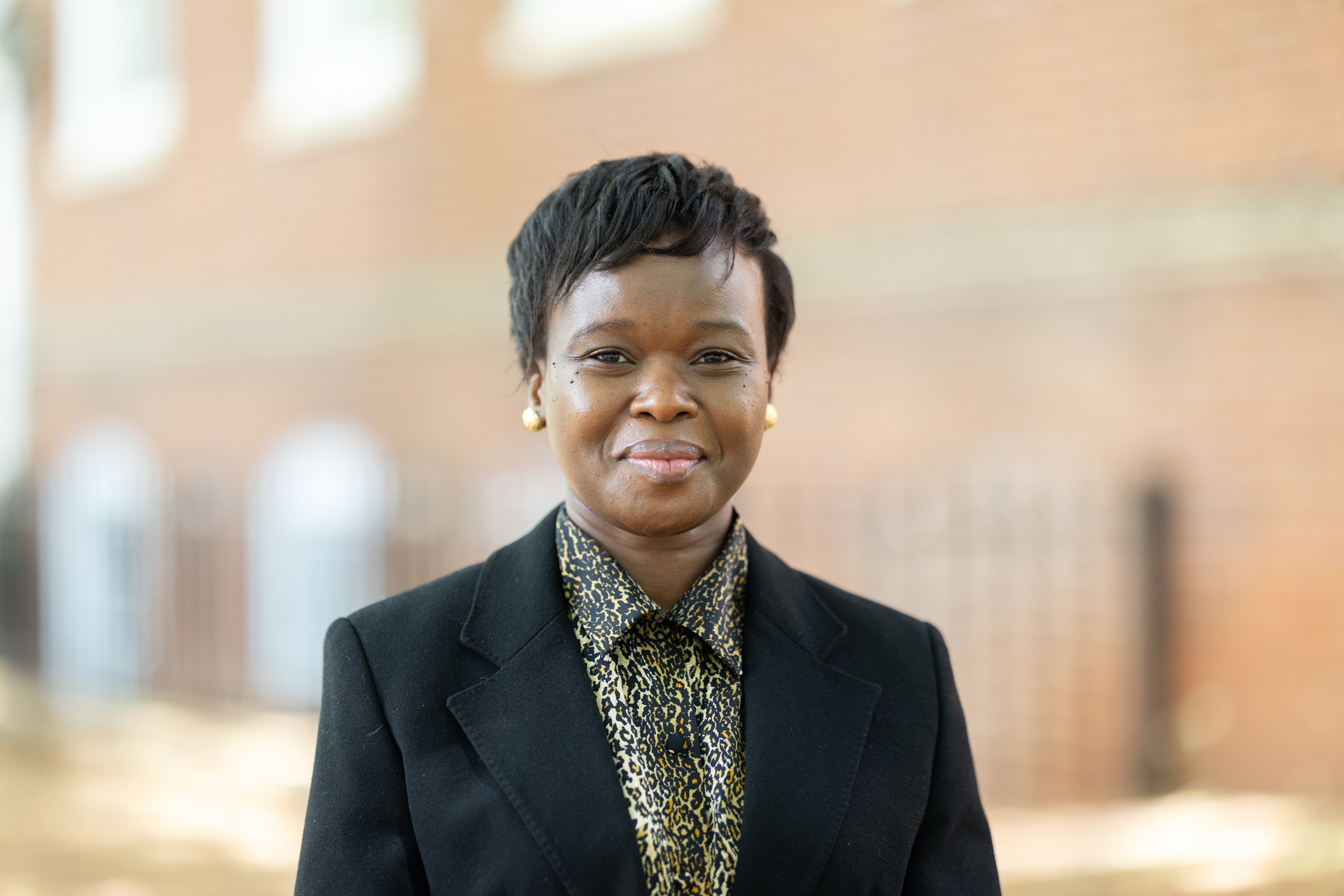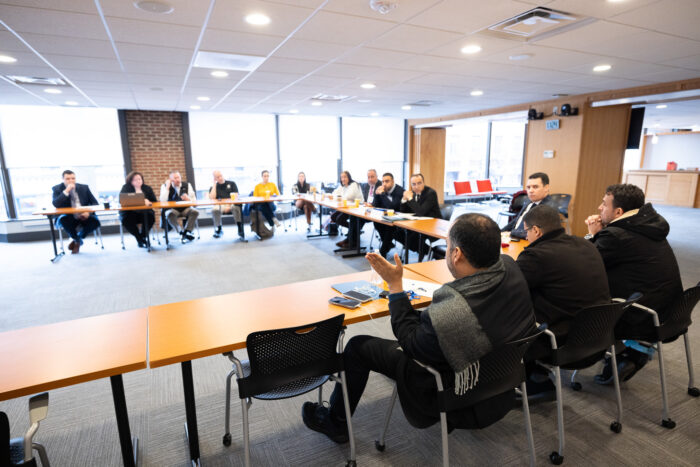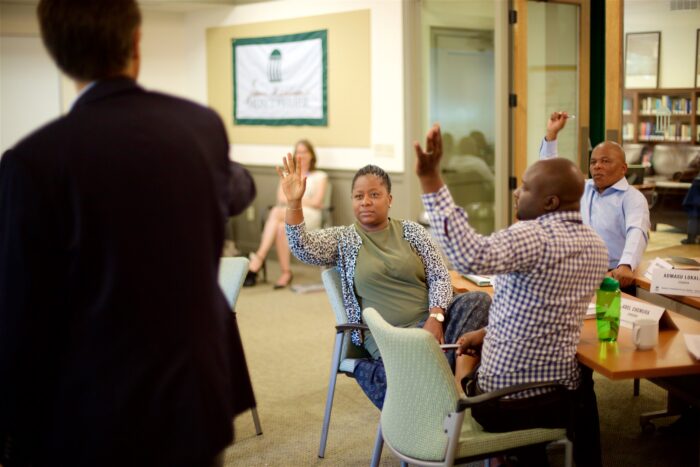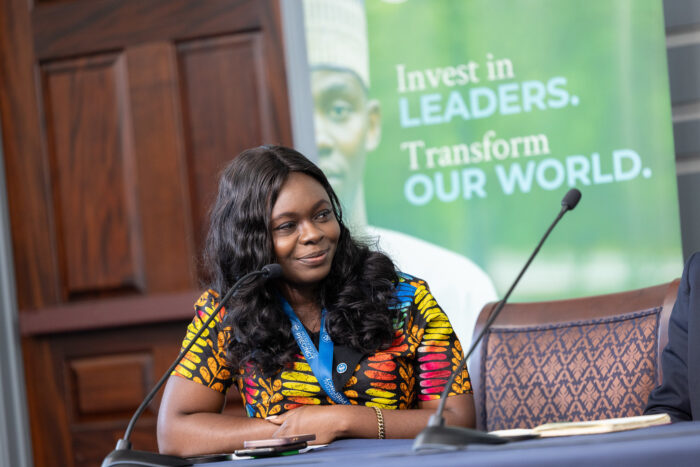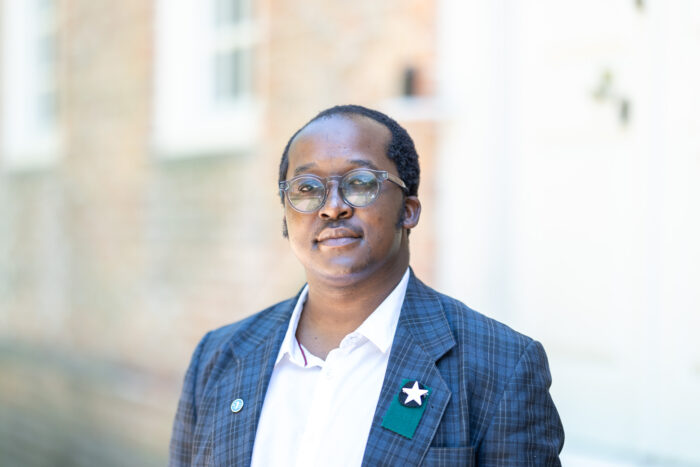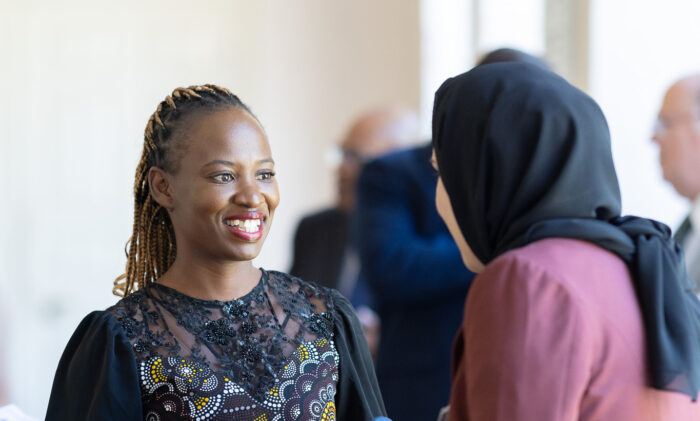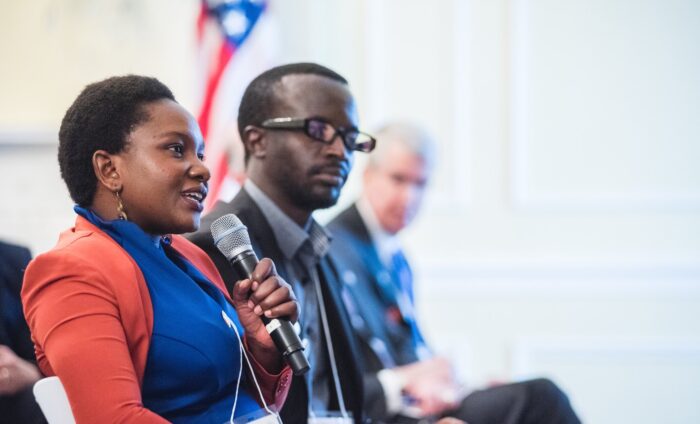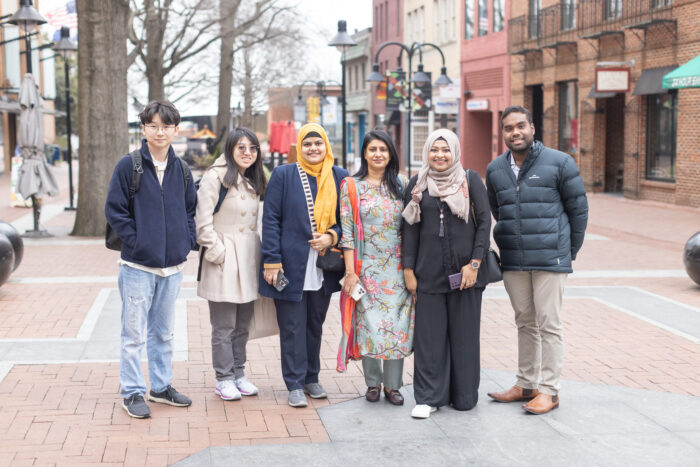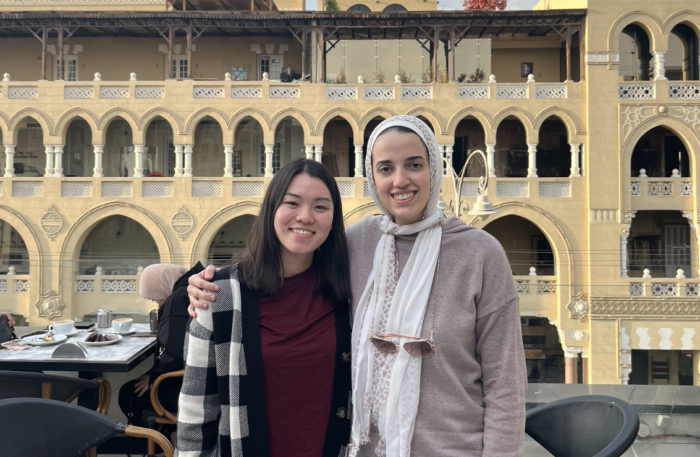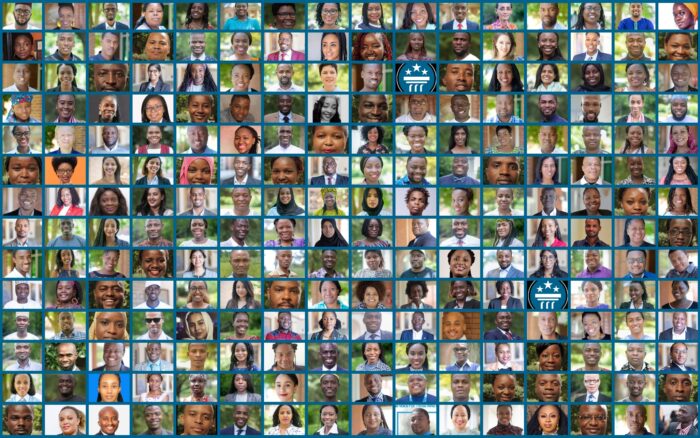Toyosi Ogunseye on Leadership, Excellence, and Navigating Your Career
As the first female editor of Nigeria’s most widely read newspaper and a former senior staffer at the BBC, Toyosi Ogunseye knows what it takes to lead. In a recent interview with Kate Byrne on the Women Advancing podcast, Toyosi, the Presidential Precinct’s President & CEO, shared lessons on leadership and insights from her career. Here are a few excerpts:
Navigating the start of your career
When you start your career, your first boss matters. Whoever you work with first is likely to determine how far you can go. I had an amazing boss and I loved it. It was encouraging.
Talking about skills, the first thing is to do what you love. I know that sounds very cliche, but it’s the truth. Do what you love. I loved it so much, and it wasn’t like work for me. Perhaps that was why I excelled at it so much because I loved it.
The second thing is do it as well as you can. There is room for excellence. There’s a difference between excellence and perfection. I was doing what I loved, and I was doing it with as much excellence as I could muster. I also recognize the people around me who could help me. I strongly believe that excellence attracts excellence. I was a young nineteen-year-old in the newsroom, still going to school studying biochemistry, but all my editors who were excellent and all the most senior journalists in the newsroom — we gravitated towards one another.
What distinguishes excellence
That’s the difference between leaders and followers most of the time, or should I say that is the difference between excellent people and other people: it’s being able to put your emotions aside. You can’t help your feelings most of the time. We’re human beings. We’ll always fail. It’s asking yourself, “Is my feeling aligned with my purpose?” Sometimes, your feeling aligns with your purpose, but most of the time, it doesn’t. It is that maturity to understand, “Even though I feel this way, I’m going to sit on this feeling and go with my purpose.” That is hard work.
The influence of women
When I was at the BBC, there was a metric we used for performance, and that was female engagement. I’ll tell you something. Every story that had a high percentage of female engagement would do well because women share. It’s as simple as that. If a woman likes something, she’s telling everybody about it.
The more technology diversification there is, the more opportunities there will be for women. It’s how we can leverage technology as women. When I talk about technology, it’s as simple as even social media platforms because a lot of us are coming from decades where women couldn’t talk and couldn’t engage in so many things. Social media has democratized all of that.
There’s much more. Listen to the episode and read the complete transcript here.

